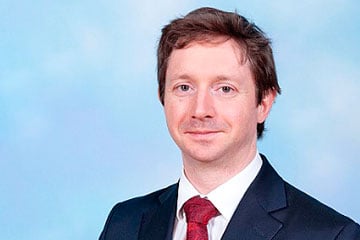
The University of Ottawa’s law school will take on the “sustained” study of how government can use technology in law.

The University of Ottawa’s law school will take on the “sustained” study of how government can use technology in law — and how the law can be used to regulate technology businesses such as Facebook, Google and Twitter, a newly appointed researcher says.
Paul Daly says he plans to spend five to 10 years studying Canadian governance and administrative law. Daly is teaching at the University of Cambridge until he joins the University of Ottawa on July 1, where he will be a university research chair in administrative law and governance.
Daly’s May 14 appointment to the role comes as the Canadian government is increasingly looking toward the uses of technology. Politicians from Canada, the United Kingdom, Argentina, Belgium, Brazil, France, Ireland, Latvia and Singapore gathered in Ottawa this week to investigate whether major technology companies are doing enough to prevent abuse, The Canadian Press reported. On May 22, the federal government unveiled a digital charter, and Canada is calling on the Competition Bureau to address the potentially anti-competitive nature of large-scale data collection.
Daly says that Canada, like Australia, England, Ireland and New Zealand, has faced challenges articulating coherent principles of administrative law for 40 years “as courts have tried to respond to developments in the way government officials make decisions.”
“When these principles are not coherent, there’s a large deadweight loss, with appeals and judicial reviews sucking up time and resources which would be better spent on front-line services,” says Daly. “And as far as governance is concerned, we live in a fast-moving world in which technology is driving change we sometimes struggle to understand.”
Daly, who previously worked at the University of Montreal, the University of Ottawa and Lerners LLP in Toronto, says the research will be important so “courts, lawyers, government officials and ordinary citizens know what their rights and obligations are.” He says that major technology companies increasingly perform important public functions.
Although the research will be ambitious, Daly says the university’s place within the federal government infrastructure will provide “enviable resources” for his work. The university said in its announcement of his position that Daly will be “developing principles to ensure that Canada’s administrative agencies work effectively and justly for the benefit of all Canadians.”
“Administrative law is about the principles of legality, reasonableness and fairness which apply to the thousands of decisions taken every day by government officials — everything from life-and-death immigration decisions to the content of cable television services,” says Daly.
“Governance is broader: I’m interested in exploring how and when artificial intelligence can be integrated into governmental decision-making; the way legislation is created and implemented by parliamentarians, civil servants and front-line officials; and whether the principles of legality, reasonableness and fairness can be used to regulate the activities of tech giants.”